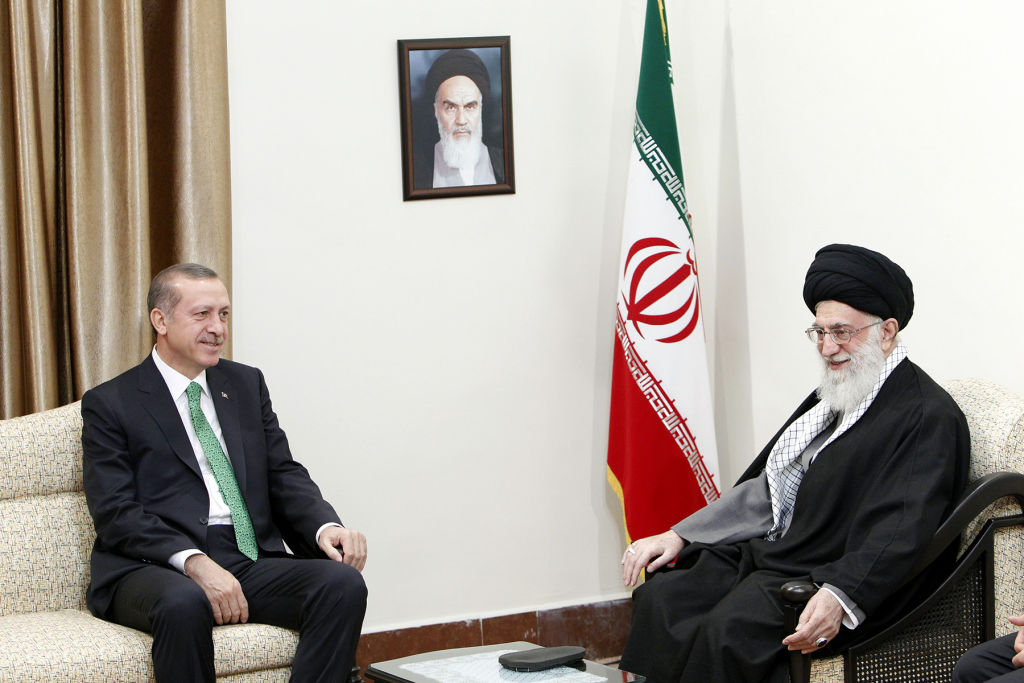In this mailing: - Burak Bekdil: Iran's Long Arm in Turkey, Turkey's Fake "Peace"
- Amir Taheri: Putin's War: The Next Phase
by Burak Bekdil • March 20, 2022 at 5:00 am What, then, revived Iran's covert operations in Turkey? For Iran, the "good Turkey" was the one in constant bickering with the West and Israel. The "bad" one is claiming to seek reconciliation with Israel, the Gulf states and Egypt. Iran's mullahs are notoriously good at poisoning peace and stability, at home and in their own neighborhood as well as in distant lands, such as Cuba and Venezuela. After a short pause, the long arm of the mullahs is back to Turkey. Twelve (foiled) plots in such a short time is a "message." Iran is trying to sabotage the Abraham Accords and their positive transformations in the region by means of subversion in Turkey against Israeli nationals. The Iranians are also vehemently trying to discourage Turkey from reconciling with the Gulf states, Israel and Egypt.... When the UAE moved to normalize relations with Israel, Turkey threatened to downgrade diplomatic ties with Abu Dhabi; and Turkey has been at odds with Egypt since 2013. These frictions have placed Turkey on the side of Hamas and the Muslim Brotherhood, while on the other side are the Gulf states, Israel and Egypt. Totally isolated and facing a punishing economic crisis, Erdoğan apparently decided to look as if he were changing course and reconcile with Israel and the Gulf states. The effort shows that Erdoğan was on the wrong course to begin with: He apparently thought Turkey's enemies were Israel and Sunni Arabs while now he should see that the real enemy is Shia Islam, in the form of Iran's theocracy. Finally, there is a lesson to Westerners who seem blind to Turkey and Iran. These rogue states are still plotting acts of terror on NATO soil. What more do they have to do for the international community to hold them to account? The lesson for governments is: Ignore Erdoğan's threats. Do not keep overestimating him or Turkey's clout. Keep isolating him to keep him from doing further harm. Isolate him to soften his rigidity on refusing the EastMed pipeline. In other words, if you want to avoid more Turkish damage in the neighborhood, do more to isolate Turkey than you have done in the past decade. And one more thing: The Mediterranean alliance should remain monolithic and, above all, ignore Erdoğan's threats.
 Turkey and Iran, rogue states are still plotting acts of terror on NATO soil. What more do they have to do for the international community to hold them to account? The lesson for governments is: Ignore Turkish President Recep Tayyip Erdoğan's threats. Do not keep overestimating him or Turkey's clout. Keep isolating him to keep him from doing further harm. Pictured: Erdoğan meets with Iranian Supreme Leader Ayatollah Ali Khamenei in Tehran on January 29, 2014. (Image source: Iranian Supreme Leader's website/AFP via Getty Images) Yair Geller, 75, an Israeli businessman who owns an advanced technologies and engineering company in Turkey, CNC İleri Teknoloji, did not know that his residence in Istanbul was long under surveillance by a cell of assassins operated by the Iranian regime. The assassins did not know that they were long under surveillance by MIT, Turkey's national intelligence agency. This double cat-and-mouse game went on until the assassins decided that the time was ripe to act and murder Geller. Turkish intelligence, however, decided that the time was ripe to share this information with Israel's Mossad intelligence agency. At a meeting in Ankara, MIT and Mossad concluded that the planned assassination of Geller was supposed to be Iran's retaliation for the November 2020 killing, allegedly by Israel, of Mohsen Fakhrizadeh, Iran's leading nuclear scientist. Before they could act, nine suspects were detained. Continue Reading Article by Amir Taheri • March 20, 2022 at 4:00 am Most wars are aimed at replacing a status quo regarded as undesirable by one or both adversaries, with a new one acceptable by the winning side and tolerable by the loser. So far, the European Union and NATO have opted for what amounts to knee-jerk reaction to show that they are doing something without deciding what it is they are actually facing. Seizing the assets of the oligarchs makes good news copy. But it is doubtful that it will sway Putin away from his adversarial trajectory. In any case, if the oligarchs' assets were produced by corruption if not actual theft, why did Western democracies welcome them as legitimate "investment"? And, if they were legit to start with, why seize them when the Western legal system excludes guilt by association? Both the EU and NATO would do well to try and de-couple Putin and the Russian people through information, public diplomacy, and carefully targeted sanctions.
 What the EU and NATO seem to have ignored is that Putin, though still popular, does not represent the evolving long-term reality that is post-Soviet Russia. Both the EU and NATO would do well to try and de-couple Putin and the Russian people through information, public diplomacy, and carefully targeted sanctions. (Photo by Mikhail Klimentyev/Sputnik/AFP via Getty Images) As it heads for its second month, like other wars in history, the war in Ukraine seems to be finding the rhythm and tempo that determines its cruising speed at least for some time. One thing that all wars have in common is that, after an initial shock-and-awe period, they are factored in as part of the broader picture of life. As wars vary widely in terms of length, it is hard to know when that factoring-in starts. The Thirty Years' War and the Hundred Years' War in Europe didn't become part of the broader picture of European existence with the same cadence. Continue Reading Article |
|
|
No comments:
Post a Comment